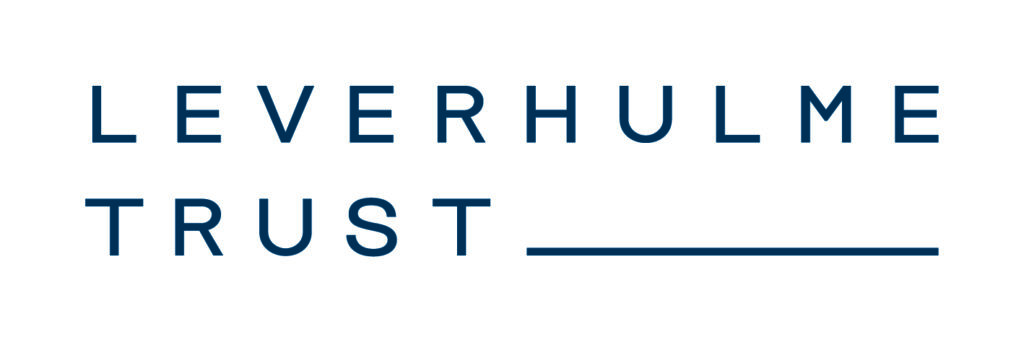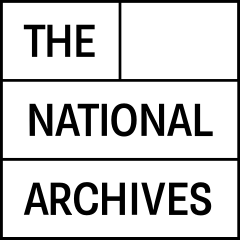
The Material Culture of Wills: England 1540-1790 is a four year Leverhulme funded project that began in November 2023. The project team will transcribe, index and analyse the contents of a very large sample of 25,000 English wills from the Prerogative Court of Canterbury. The project is a partnership between researchers at the University of Exeter and The National Archives and explores the key question: how did people’s relationship with their possessions change in an era of rapidly increasingly trade and commercialisation?
We have a complex relationship to the material culture with which we surround ourselves. Objects serve practical functions, but they also denote status, gender, and cultural milieu. They are a store of wealth, but also of memories and sentiments. As gifts and bequests, they create and strengthen relationships. The accumulation of personal possessions evokes strong emotions from intense desire to moral repugnance. Unlike other historical documents which merely list goods owned, wills allow an analysis of attitudes to material culture. Wills are also the only type of personal document to survive in their hundreds of thousands for the period before 1800. It was not necessary to describe material objects in wills: testators could simply refer to the ‘residue of goods’ unbequeathed. But most took the trouble to describe in detail some possessions and leave them to a particular relative or friend. It is the element of choice in selecting and describing objects that makes wills so revealing of people’s values.
Please explore the sections below to find out more and to view our newsletters that provide updates on how the project is progressing. Alternatively, you can watch this three and a half minute YouTube video where members of the team summarise our approach in a nutshell.
To tackle the mammoth research challenge of transcribing tens of thousands of manuscripts we are using Artificial Intelligence as well as working collaboratively with the public. We will first create a Handwritten Text Recognition (HTR) AI model which can be applied to our manuscripts to generate automated transcriptions of the wills. After this we will work alongside our volunteers to carefully check these transcriptions for accuracy and to correct errors, before the data is entered into our database ready for analysis. Since it takes about 45 minutes to transcribe a will by hand, this will enormously accelerate the transcription process.
The project will therefore produce a range of resources that will be valuable to a very broad range of people interested in early modern history, from academics and students to local historians and genealogists.
For more on how we will co-create our data alongside the general public and to get involved, see Volunteers.
The project is partly a study of economic change: of how new goods made available by expanding global trade and technological innovation were adopted into English society and culture and given meaning; and of the balance between goods and money or other financial devices as a means of storing and transmitting wealth. But it is also an exploration of varied and changing cultural values: of the meanings embodied in different types of objects, and of the relationships expressed in their transfer via bequests. Positioned on the cusp of death, wills reveal how material culture was used to commemorate people’s lives.
This project uses an unprecedented quantity of wills to examine changing attitudes to goods as possessions in the 250 years before the Industrial Revolution. Although a study of this scale could not have been attempted before, in fact we are still only transcribing and analysing a sample of the wills that survive from this period – there are more than a million pre-1853 wills in The National Archives’ collection alone. To create our sample we are taking 5,000 wills from five evenly spaced periods, listed below. Since more wills are made over time, the more recent sample periods are shorter:
Sixteenth century – made during the reigns of Henry VIII and Edward VI
1538-1552
Seventeenth century – made during the reign of James I, and the reign of Charles II
1604-1608
1664-1666
Eighteenth century – made during the reign of George I, and the reign of George III
1725-26
1785-86
The project introduces a new measure of change over time (types of goods bequeathed), but most innovatively, demonstrates how economic change was experienced and integrated into people’s lives through the adoption and assimilation of new goods, contributing to the history of trade, consumption, and living standards. It therefore reframes the question, asking not ‘how was wealth created?’ but ‘what did that wealth mean?’ when it was embodied in a wide variety of objects and integrated into people’s lives.
RESEARCH PRESENTATIONS
13 February 2024: Laura Sangha, ‘The Material Culture of Wills, England 1540-1790‘. Combined University of Plymouth & Plymouth HA Branch Seminar Paper.
26 February 2024: Laura Sangha, ‘The Material Culture of Wills, England 1540-1790‘, Online seminar for Reading Early Modern Research Centre, University of Reading.
28 February 2024: Laura Sangha and Emily Vine, ‘The Material Culture of Wills, England 1540-1790‘, University of Exeter, Centre for Early Modern Studies seminar series, hybrid.
17 April 2024, Emily Vine, online Talk to Quaker Wills Committee.
18 November 2024: Emily Vine, ‘The Material Culture of Wills, England 1540-1790’, Trinity College Dublin Centre for Early Modern History Research Seminar Series.
23 November 2024: Emily Vine, ‘In Search of… the Inheritance: Understanding Wills, Probate, and Related Records for Family History’, Society of Australian Genealogists conference.
30 November 2024: Harry Smith, ‘The Material Culture of Wills, England 1540-1790’, Local Population Studies Society Autumn Conference: New Research in Local Population History, Online Presentation.
8-9 January 2025: Laura Sangha, Emily Vine, Jane Whittle: Panel at ‘Integrating the Image: Visual Culture, Material Culture and Early Modern British History’, Newcastle University.
22 January 2025: Emily Vine, Quaker Family History Society, Online Presentation.
24 February 2025: Emily Vine, Association of Genealogists and Researchers in Archives (AGRA) Lunchtime Lecture, Online Presentation.
25 February 2025: Laura Sangha, ‘Wills as Windows onto past lives in Tudor and Stuart England’, talk to U3A Exeter Branch, Digital Humanities Lab, University of Exeter.
11 March 2025: Emily Vine, Society of Genealogists ‘Palaeography Club’ Lecture, Online Presentation.
4 – 6 April 2025: Harry Smith, ‘The Material Culture of Wills: Preliminary Findings’, Economic History Society Annual Conference, University of Glasgow.
29 May 2025: Emily Vine, Using Digital Repositories’, part of KCL Centre for Early Modern Studies ‘Teaching the Early Modern Webinar Series’. Online presentation.
2 – 5 July 2025: Laura Sangha, ‘”Her Mother’s Maryage Ringe”: Interconnections in English Wills c.1540-1790’, Society for Renaissance Studies Biannual Conference, University of Bristol.
23 September 2025: Emily Vine, Devon Family History Society, Online presentation.
22 October 2025: Harry Smith and Emily Vine, Warwick History Postdoc Club ‘Methodologies’ series, Online presentation.
21 November: Laura Sangha, ‘Wills as Windows onto past lives in Tudor and Stuart England’, Devonshire Association, Tavistock and West Devon branch.
28 November: Laura Sangha and Harry Smith, ‘Automatic Transcription of Handwritten Texts: The Material Culture of Wills, England 1540-1790’ at ‘Archives, Archaeology and Artificial Intelligence’, a workshop by Devon History Society and Devon Archaeological Society, at Devon Heritage Centre.
7-9 January 2026, Harry Smith and Emily Vine, Conference panel entitled ”Big Data / Small Objects: Digital approaches to eighteenth-century wills and material culture’, at the British Society for Eighteenth Century Studies Conference, Pembroke College Oxford.
7 May 2026, Laura Sangha, ‘The Material Culture of Wills, England 1540-1790’, Institute of Historical Research Society, Culture and Belief 1500-1800 Seminar Series. In person and on Zoom, book here.
EVENTS WITH CHRIS HOBAN, PROJECT CREATIVE FELLOW (funded by Arts and Culture)
15 May 2025: Wills as Windows onto the Past: Double Elephant Press Print Workshop, Creative Quadrant, University of Exeter. Part of Chris Hoban and Laura Sangha’s Arts and Culture creative collaboration.
18 June 2025: An Evening of Stories and Songs: Wills as Windows onto Past Lives. Composer, lyricist and performer Chris Hoban and wills project Co-Investigator Laura Sangha with a mixed ensemble of musicians, Devon and Exeter Institution.
11 October 2025: Stories and Songs: Wills as Windows onto Past Lives at the FUTURES: Festival of Discovery. Chris Hoban and Laura Sangha, with a mixed ensemble of musicians. Exeter Phoenix Auditorium.
PODCASTS AND WEBINARS
12 November 2024: Material Culture of Wills Introductory Webinar, with Laura Sangha, Emily Vine and Jane Whittle.
24 December 2024, Ecclesiastical History Society Podcast, ‘Talking with … Dr Laura Sangha’.
13 March 2025: That Shakespeare Life Podcast, ‘Last Will and Testaments for 16th and 17th century England’ with Laura Sangha.
19 March 2025: Material Culture of Wills Webinar 2: An Update on Our Progress, with Laura Sangha, Harry Smith and Emily Vine.
WORKSHOPS
14 November 2024: Wills Project Team visit to The National Archives.
23 March 2024: Online Expert Volunteers Workshop 1 with Laura Sangha, Harry Smith and Emily Vine.
15 May 2024: Online Expert Volunteers Workshop 2 with Mark Bell, Laura Sangha, Harry Smith and Emily Vine.
17 June 2024: ‘What’s in a Will? Using Wills in Historical Research’. Workshop led by Mark Bell, Laura Sangha, Harry Smith, Emily Vine, Jane Whittle. The National Archives, generously funded by Exeter’s Public Engagement with Research fund.
21 June 2024: ‘What’s in a Will? Using Wills in Historical Research’. Workshop led by Laura Sangha, Harry Smith, Emily Vine, Jane Whittle. Digital Humanities Lab, University of Exeter, generously funded by Exeter’s Public Engagement with Research fund.
17 September 2024: Expert Volunteers Workshop 3 with Mark Bell, Laura Sangha, Harry Smith and Emily Vine.
9 December 2024: Wills Project Team Workshop at University of Exeter.
6 February 2025: Wills Project Team visit to The National Archives with Project Creative Fellow, Chris Hoban.
24 July 2025: Wills Project Transcribathon, University of Exeter and on Zoom. The project team gave talks on all aspects of the project while attendees completed transcriptions on Zooniverse. Around 20 people attended in person, with more than 70 online. On the day 3495 lines of text were checked or corrected in three hours.
PODCASTS, WEBINARS, VIDEOS
December 2024, Ecclesiastical History Society Podcast, ‘Talking with … Dr Laura Sangha’.
March 2025: That Shakespeare Life Podcast, ‘Last Will and Testaments for 16th and 17th century England’ with Laura Sangha.
November 2024: Material Culture of Wills Introductory Webinar, with Laura Sangha, Emily Vine and Jane Whittle.
March 2025: Material Culture of Wills Webinar 2: An Update on Our Progress, with Laura Sangha, Harry Smith and Emily Vine.
May 2025, Around the Zoo: The Material Culture of Wills on the Zooniverse Channel, a short introduction to the project from members of the research team.
The project YouTube Channel contains a complete guide to Zooniverse for beginners and other Zooniverse troubleshooting videos.
OTHER MEDIA
See our project blog for updates on our method, progress and for our ‘Will of the Month’ series which highlights interesting wills and objects.
‘
Exeter Arts and Culture Creative Fellowship website, Wills as Windows onto Past Lives.
University of Exeter press release: ‘Research project invites members of the public to help transcribe thousands of historic wills‘.
University of Exeter press release: ‘Two New Creative Fellowships Announced Between South-West Artists and University of Exeter Academics‘.
University of Exeter press release: ‘Research project investigating material culture and historic wills inspires night of history and music’.
Public Engagement with Research at the University of Exeter Blog:‘What’s in a Will? Using Public Engagement to Add Depth to a Project’.
Public Engagement with Research at the University of Exeter Blog: ‘What’s in a Will?’ Workshops
ACADEMIC PUBLICATIONS
Journal articles
Harry Smith and Emily Vine, ‘Material and Digital Archives: The Case of Wills’, Transactions of the Royal Historical Society, December 2024 (published online September, 2024).
Harry Smith and Emily Vine, ‘Research note – The Material Culture of Wills: England 1540-1790’, Local Population Studies, 113, Autumn 2024 (published online 7 December 2024).
Edited Volume
The centrepiece of the project will be an edited volume The Material Culture of Wills that will showcase the range of issues relating to early modern material culture that can be explored using the 25,000 wills. Alongside contributions by the project members, a range of other historians will be given access to the database and invited to contribute chapters on their own areas of research expertise. It is likely that the themes explored will include types of bequests (textiles; books; global goods); types of testators (e.g. gentry; urban elites; mariners); as well as patterns relating to gender, kinship and geography.

